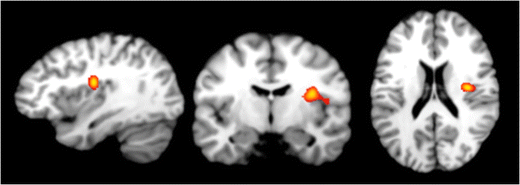Today, at the end of the second decade of the 21st century, the word “mindfulness” is omnipresent in all the western contemporary literature concerning well-being. The word was once, during the last few decades of the 20th century, “meditation” but only hippies, new agers, yogis, buddhist monks and the beatles used it or were associated with it.
Now the new name” mindfulness” is on the lips of many mainstream conservative and hardcore medical model practitioners and in tons of their research journals. The latter are now publishing hundreds of studies which show positive result after positive result as to its efficacy for managing anxiety, depression, stress and a horde of other psychological and physical ailments. (check the links below of field specific research journals)
The world just cant get enough of mindfulness by whatever means possible. There’s a squillion apps, books, videos, programs, courses, certificates, niknaks and in fact a billion dollar a year industry has emerged from making meditation a highly profitable product over the past 40 years.
How did the western rebranding of meditation to mindfulness come about?
Changing the product’s name is a very common strategy in branding and marketing. In this case it was a phenomenal coup which came about in the early 80s.
The new name mindfulness was better accepted in scholarly research programs and more reachable to the mainstream population.
Psychology patients accepted this terminology of meditation more easily and it stuck. The technique grew in popularity and now mindfulness also called “mindfulness meditation” is fully known globally.
My postgraduate research thesis in Psychology in the late 90’s was titled ‘Mindfulness meditation and anxiety in women” and I was the first and only student in the department interested in this subject back then. Because of my yoga teaching background and positive personal experience I wanted to explore what science if any existed on meditation as a technique in psychological treatment.
Conducting my study offered me the opportunity to research thoroughly all the scientific literature on meditation available from around the world at the time. Most of the studies from the 60’s to the 80’s focused on Transcendental Meditation (TM) which is repeating a mantra during meditation. The studies were published in mostly Indian, some British and French as well as in very few american science journals. Many of these studies had serious internal validity issues. As for Buddhist meditation, or Zen meditation it was only written about in eastern religion journals and not mentioned in any western medicine or psychology journals.
Meditation in all its forms at the time especially the buddhist mindfulness meditation technique which is breathing and observing thoughts was a brand new seed of what is now a gigantic tree of scientific research.
That seed, named the Mindfulness-Based Stress Reduction program (MBSR) was planted at the University of Massachusetts Medical Center by Jon Kabat-Zin with a formal, well funded and carried out plan to explore the benefits of Mindfulness as a useful technique to manage stress. The researcher removed the buddhist framework but utilized the teachings and the concepts of mindfulness. No Mantras, no yogis, no hippies.
Stress in the 90’s was the new big societal disease, the modern day plague, and was accused of being the cause of everything gone wrong in the body and mind and everybody wanted a cure. Hence the creation of the billion dollar industry “stress management”.
Kabat-Zin’s and other such programs experienced a roaring success and influenced, initiated, and inspired an entire field of Psychology in stress management where mindfulness is still the prominent technique recommended and taught.
My thesis ended up being a recap of Kabat-Zin’s research articles which created the framework for my study. Positive results were also shown in my experiment for practicing mindfulness to manage anxiety.
On a personal note, I certainly would not be who I am today, professionally and personally without mindfulness meditation and feel very grateful to Psychologists such as Dr Kabat-Zin who early in my career as a therapist inspired me.
So that was a very brief and somewhat mono view of the origin of Mindfulness in the west. Now why do it?
Why do it?
Because it works. Simple as that. Science shows it.
If you want to research the neuroscience of meditation and how all the synapses in the brain function whilst in a meditative state as shown on MRI photo data. https://link.springer.com/article/10.1007/s12671-018-0884-5

The Harvard Gazette published a great article about the science of Mindfulness with great research links if you need further nudging in terms of evidence.
Your self-care routine
Like with any good habit forming and/or modification it begins with THE decision.
Decide you want to practice a form of meditation daily for 10 minutes minimum and it becomes like brushing your teeth. After a disciplined first month it becomes routine. And boom in a few weeks you are meditating daily, you are less stressed, more peaceful, more aware, more “mindful”.
Why not try one of the squillions apps or ubiquitous videos and podcasts. No need to spend any money. However if you do want to spend money on fancy podcasts, videos and apps by wonderful teachers out there do it! spoil yourself. Better then spending on addictive, health destroying crap.
It becomes that bit of time just for you to close your eyes and recalibrate the brain. Regulate the emotions, even out the moods. Let the thoughts go by and detach. It’s only 10 minutes a day.
It’s worth it because it works. It’s easy and it’s free.
You just need to close your eyes and breathe. Observe the thoughts without judgment. Relax your body in the process.
Why not also use some of that time to (or not) pray to your god/power/universe/inner self.
End your meditation time by finding 3 things in your life that you are grateful for and say thankyou to yourself, your god etc.
That time of mindfulness is yours. It’s allocated. It’s the routine.
Self-care means prioritizing time for self in solitude and retreat from the external world to resource, to relax, to be still.
Try this 5 minutes guided Relaxation for stress release;
Research links
Positive Psychology: https://positivepsychology.com/mindfulness-brain-research-neuroscience/
Harvard gazette: https://news.harvard.edu/gazette/story/2018/04/harvard-researchers-study-how-mindfulness-may-change-the-brain-in-depressed-patients/
Springer: https://link.springer.com/article/10.1007/s12671-018-0884-5

